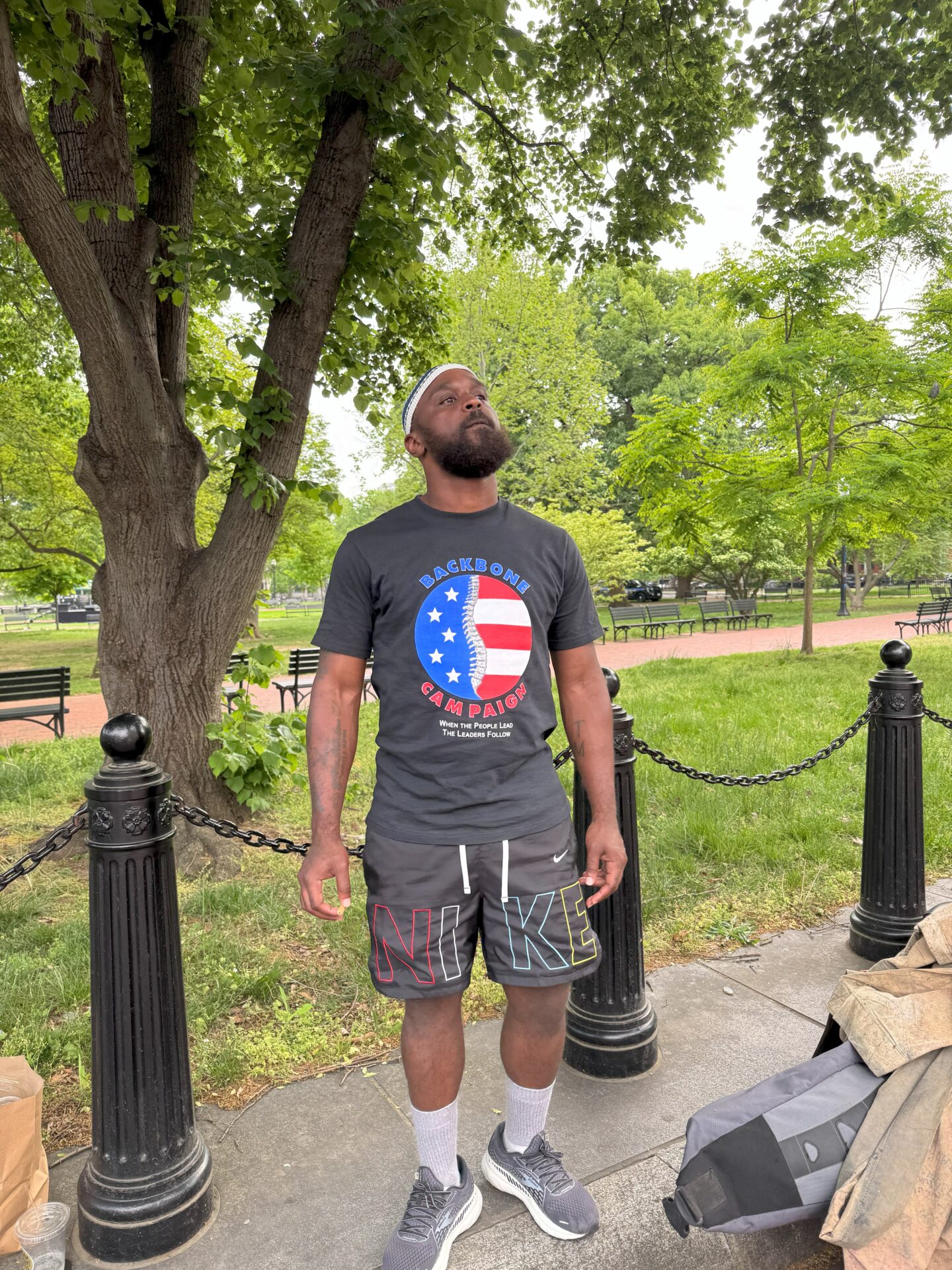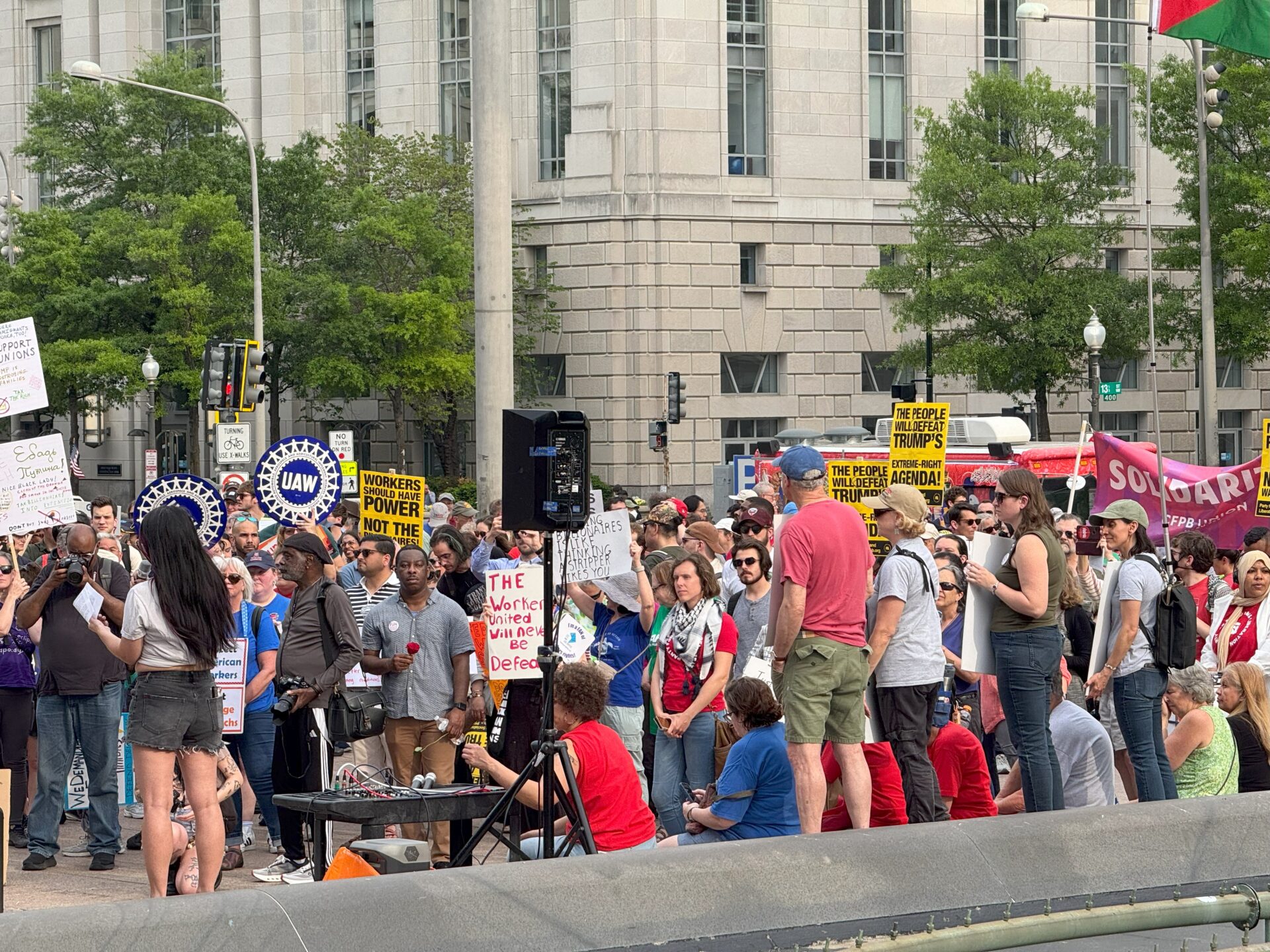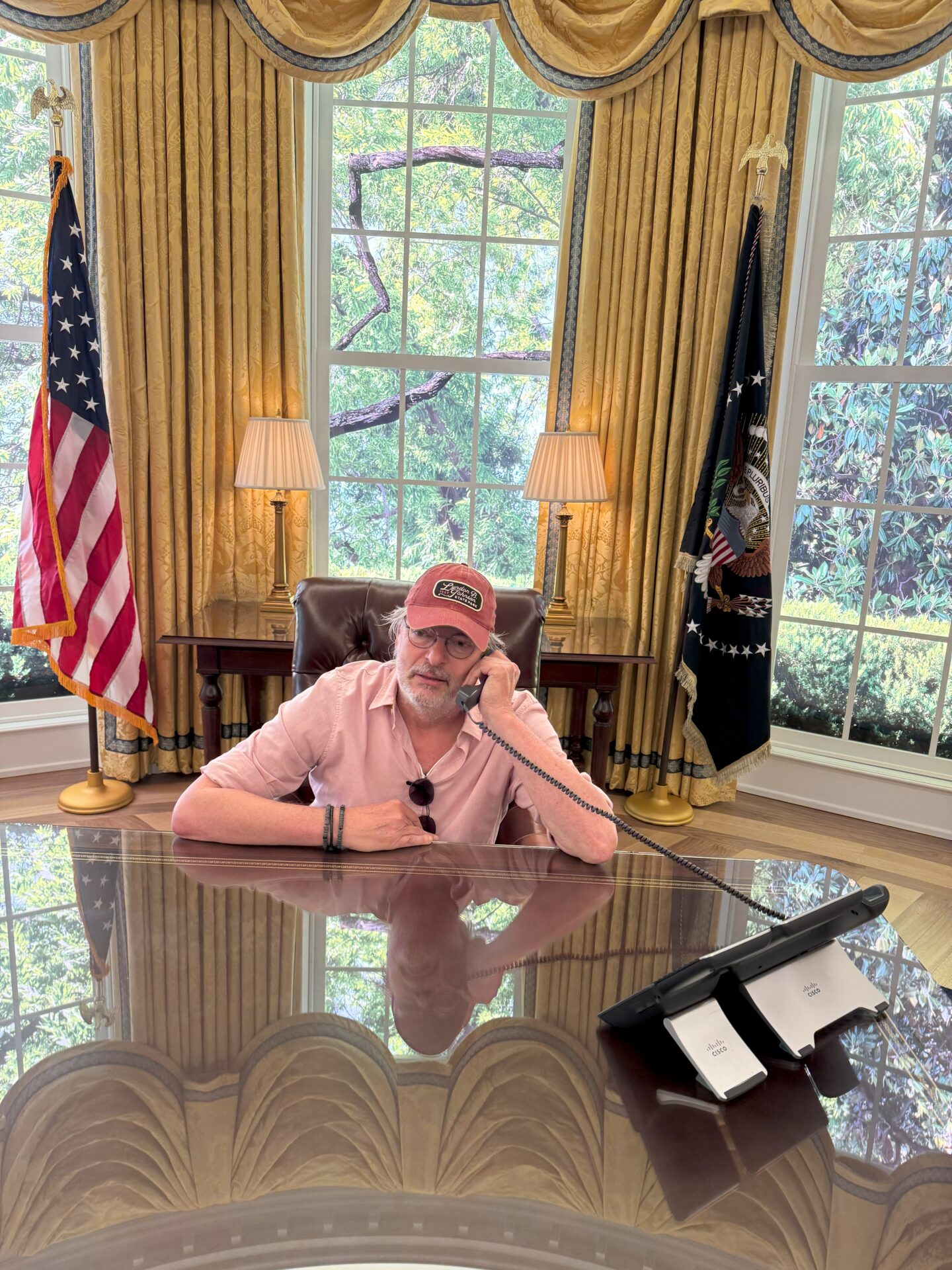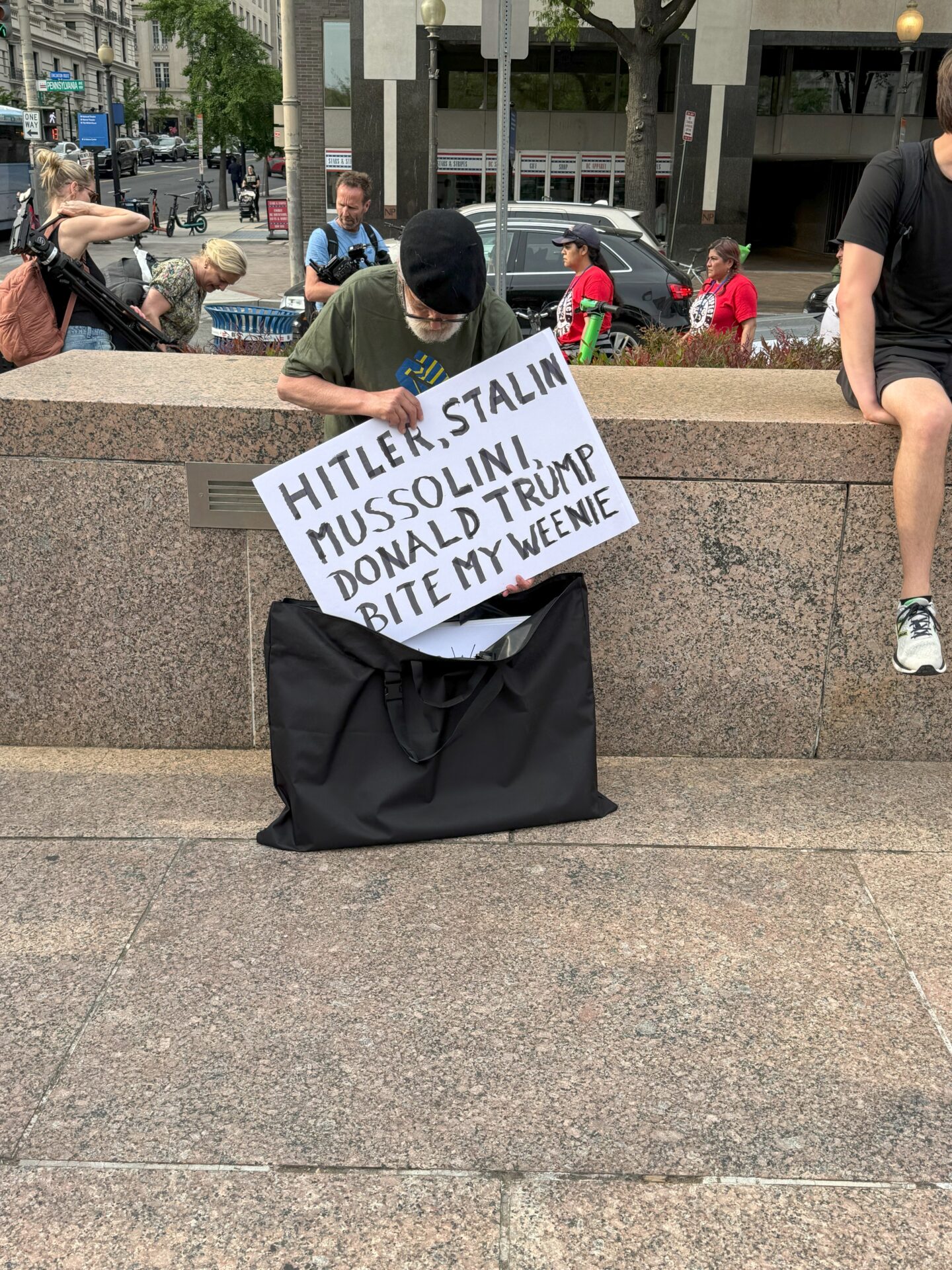On the surface, little seems to have changed in the United States since Trump came to power
Six months after his election trip through the United States, Americanist Peter van der Heiden went back to his beloved America. He'd left under Biden, and he returned under Trump. He noticed subtle and less subtle changes, none of them for the better.
Before we left, some of the senior administrators here at the university were quite shocked. A study trip with 24 students to the United States, at this time: was that wise? Just as reports were coming in of students having their visas revoked and critical scientists (or even some tourists) being denied entry to the country?
What if I, as the supervisor in charge, was not allowed to enter the country? The title of my book on Trump, Weirdo’s in Het Witte Huis (Weirdos in the White House), could well lead to trouble… But then again, everything was already booked (back in the days when I was firmly convinced that Kamala Harris would win the election), and I assumed that I was not prominent enough to appear on the radar of Trump supporters – which, somewhat disappointingly, turned out to be the case. And so we left to discover first-hand whether America had changed, and if so, how.
‘The gatekeepers are quite eager to assert their power’
Now, while I had no trouble entering the country, this was not the case for one of the students, who had to wait for over two hours only to be admitted after three simple questions. A first indication that the border guard has become stricter? No way – they were always pulling these kinds of stunts. Whereas the average American is extremely amiable (even rednecks tend to be amazingly friendly), the same is not necessarily true of the gatekeepers, who are quite eager to assert their power.
In totally arbitrary ways, but they already did so under Biden and Obama. So nothing new under the sun, although we probably would have encountered more problems if we had not been entering Trump’s America with only white people who all had an ‘M’ or an ‘F’ in their passports.
Careful with politics
That some things had changed became clear upon arrival at our hostel in Washington DC. The manager there concluded his welcoming remarks with a warning about being careful when talking politics ‘in these times’. I had never heard that warning before on any of my many trips in America, and it was all the more striking as the hostel was situated in the middle of Washington’s best known LGBTQI neighbourhood and was flanked by a gay bar (frequented by ‘furries’ and drag queens) and a lesbian bar, on a street filled with rainbow flags.

The most progressive street in a progressive city, and yet this kind of warning: that is saying something. A little fun fact: when Trump was out of the country to attend the Pope’s funeral, the façade of the Kennedy Center (of which Trump appointed himself chair) was illuminated with rainbow colours. Just before his return, this pattern changed to the American flag.
On the surface, little seems to have changed in America since Trump began his second term with an avalanche of reactionary and revanchist executive orders. For the observant viewer and listener, however, some things do stand out. A sticker with ‘Trump has an outie butthole’ on the gents of a café, for example – not really a substantive political observation, but a rather graphic way of making one’s dislike of the current president clear. And some probing questions during our more academic visits yielded even more information.
Between the lines
For example, a researcher at the People’s House (a permanent exhibition on the History of the White House) remarked after his lecture on the slavery history of the presidential official residence that he was glad he worked at a private institution that did not receive a penny of federal subsidy. As a result, he did not fall under Trump’s ban on research around anything to do with DEI, and was able to simply continue to do his work and exhibit and publish it.
His peers at the National Museum for African American History were less fortunate. That museum does fall under the federal government, and the president has already set his sights on it. With his Orwellian ‘Restoring Truth and Sanity to American History’ decree, Trump is trying to sweep under the carpet (literally whitewash) all kinds of issues that cast a somewhat less flattering light on American History, and NMAAH is a prime example of that.
Perhaps that was why the porter of this museum commented as we entered: ‘Your visit is a blessing’… Incidentally, the museum, like the adjoining National Museum for the American Indian, remains committed to its own collection and story and thus, in Trump’s eyes, a blot on America’s shining armour, though it remains to be seen how long it can keep that up now that Vice President J.D. Vance has been appointed a board member of the umbrella Smithsonian Institution, which the NMAAH falls under.
Protest was usually found between the lines. For example on a tour of the Capitol, where the guide went pretty wild about DEI measures and the racist history of the US when she realised the whole group was from the Netherlands. Somewhat smugly, she added that she would never have dared to say such things (‘Let’s move on from Jefferson, I can’t stand that hypocrite’) if there had been even one American among our group (‘But Europe is so cool, can I join your group going home?’).
Small turnout
A more cryptic comment came from the head of Education who gave us a tour of the National Archive (he had, but that is an aside, once accidentally ended up at the Four-Day March and had acquired warm feelings for Nijmegen as a result); so cryptic that most of my travelling companions did not even notice it. When talking about the president, he said he was talking about the institution and not the person, with a contemptuous smile for the latter.
‘Make America Great Again’? The country had never been ‘great’ and never would be – at most a little better, but certainly not for now. Speaking about the Constitution’s first amendment, freedom of speech and assembly, he made it clear that it mattered precisely when it went against the established political climate and thus should never be allowed to be suppressed by the executive powers.
The same applied to his interpretation of the Declaration of Independence (‘The perfect break-up letter’), which gave the right of opposition to a government that is going against the interests of the people (the use of the present tense was subtle, but unmistakable). And the Constitution’s right to due process applied to everyone residing in America, he stressed, not just citizens, as the Trump administration would have it. These seem like neutral statements, but they no longer are in Trump’s America.
In the early morning of 1 May, at the hostel, I met a middle-aged woman called Jeanny from around Nashville, Tennessee, an anti-Trump activist from a deeply Republican state (‘I’m the only Democrat in miles around there’) who had come to the capital to join the Mayday protests. Her family no longer wanted contact with her and she had also been fired for being a Democrat and a union member, she told me – that is how far polarisation goes.
Trump is destroying America, she said, and he is mostly destroying ordinary Americans. The president and his billionaire cronies are grabbing money away from modal residents and a turnaround was clearly visible, according to her. ‘People don’t accept it anymore. The protests today will be huge!’ She had booked the hostel for three days, but planned to stay longer if the demonstrations generated momentum. Unfortunately, she was actually able to return to Tennessee the same evening.
The promised mass demonstration failed to materialise, although the White House was hermetically sealed with fences for the occasion. At the adjacent Freedom Plaza, I counted no more than two thousand protesters, and that is an optimistic estimate. Those present did have some hilarious banners, which probably wouldn’t make much of an impression on America’s humourless current leaders.
Land of the free
Even in Boston – the second destination in our study trip – life under Trump continues on the surface as before, with subtle protests here and there – a cap, a T-shirt, that sort of thing. But then, the capital of Massachusetts is one of the most progressive cities in the USA. ‘I bet you can’t find 500 MAGA-Republicans in this city,’ I was told on the underground by a man wearing a cap sporting ‘Gulf of Mexico’ on it (another protest since Trump banned that name by decree and changed it to ‘Gulf of America’).

At the universities, it is easier to see that power has shifted quite a bit. Harvard is losing its federal grant – more than $2 billion. And that has an impact, as we were told by a man who runs an agency trying to get prospective students into that prestigious university. Students from abroad are less keen to go to Harvard, and once at Harvard, students and staff are definitely more apprehensive about speaking out on sensitive issues. The price you pay for doing so is very high, and not only financially.
Students fear that their visas will also be revoked if they do something that is unacceptable, or simply because they look foreign, which has already happened several times under the Trump administration. The First Amendment, the freedom of speech that has long been utterly unlimited, has been rapidly stripped of its well-nigh sacred status for those who disagree with the president.
However: the wild stories we have been hearing of late about the US are quite exaggerated. It is still a great country to visit, although it has changed. Caution is palpable in many places, uncertainty has clearly increased – which is still quite shocking in ‘the land of the free’. I wonder how much the democratic erosion will have deepened by the time I come back to ‘the home of the brave’ – if they still live there by then.






